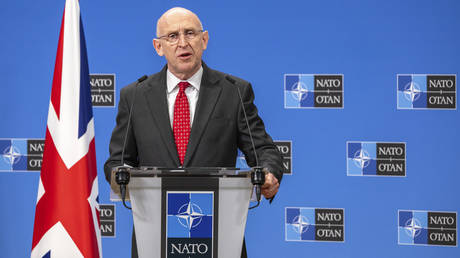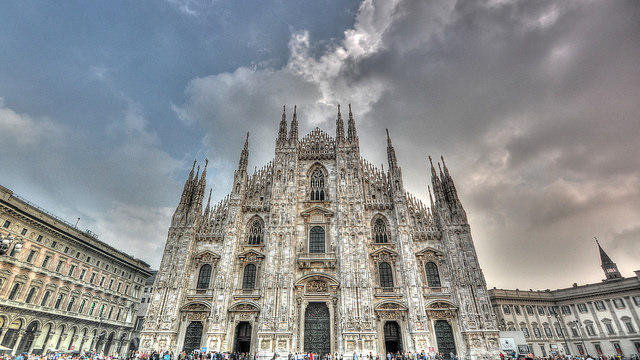President Trump is about to complete his first 100 days—here’s what he’s done
Here are some key takeaways from the most consequential start of a term of an American presidency since Franklin D. Roosevelt.

In his first 100 days, President Donald Trump exerted his power in a sweep and scale that has no easy historical comparison.
His actions target the architecture of the New Deal, the Great Society, and the Reagan Republican orthodoxy of free trade and strong international alliances. He has taken direct aim at law, media, public health and culture, attempting to bring all to heel.
Here are some key takeaways from the most consequential start of a term of an American presidency since Franklin D. Roosevelt.
Economy
Trump has tried to bend the U.S. economy to his will. But one force is unbowed: the financial markets.
The president says his tariffs will eventually be “beautiful.” So far, it’s been a difficult three months with consumer confidence plummeting, stock markets convulsing and investors losing confidence in the credibility of Trump’s policies.
He has imposed hundreds of billions of dollars in tariffs, including on America’s two largest trading partners, Mexico and Canada. Chinese goods are getting taxed at a combined 145%.
He has rewarded the coal and oil sectors by attacking alternative energy, yet his tariffs pushed up the price of the steel and other materials that the energy industry needs to build out production.
— By Josh Boak
DOGE
Trump promised to take on what he called waste, fraud and abuse in government. He tapped Elon Musk to lead the effort.
Musk turned his plan for a Department of Government Efficiency into one of the most polarizing and consequential pieces of Trump’s first 100 days.
The billionaire entrepreneur approached the task with a tech mogul ethos: break things, then see what you want to fix. Firings were widespread and indiscriminate. Programs were eliminated with limited analysis.
It is unlikely that Musk will accomplish his grand-scale goals. His plans for slashing $1 trillion out of the budget were pared back to $150 billion.
— By Chris Megerian
Immigration
Cracking down on illegal immigration was the anthem of Trump’s campaign, and it is the issue where he has the greatest support.
He has followed through by implementing some of the hardest-line immigration policies in the nation’s history, even as the promised mass deportations have yet to materialize.
Trump invoked the Alien Enemies Act of 1798 to deport immigrants with limited due process, then used it to send hundreds of alleged Venezuelan gang members to a mega-prison in El Salvador in defiance of a court order.
The administration pledged to end birthright citizenship for people who were born in the U.S., while proposing “gold cards” that would allow foreigners to buy American citizenship for $5 million.
Illegal border crossings dropped precipitously.
—By Will Weissert
Retribution
Trump entered office pledging to bring “retribution” for his supporters.
He made good on that on his first day and virtually every week since, taking aim at the prosecutors who investigated him and the law firms that employed them. He went after former officials who criticized him or correctly asserted that he had lost the 2020 presidential election to Democrat Joe Biden. And he targeted elite universities whose policies irked him.
Trump ordered the suspension of the security clearances of the more than four dozen former intelligence officials.
The Justice Department fired the prosecutors who investigated him as part of special counsel Jack Smith’s team and demanded the names of FBI agents who participated in investigations into the Jan. 6, 2021, riot at the U.S. Capitol.
Executive orders targeted some of the country’s elite law firms, in some cases because they employ or once employed prosecutors who investigated Trump.
— By Eric Tucker
Courts, judges and the rule of law
Trump has consistently said he would follow an order from federal judges. But that has not stopped talk of a possible constitutional crisis over defying the courts.
His executive orders reshaping the federal government are facing more than 150 lawsuits on issues from fired federal workers and immigration to transgender rights.
Judges have ruled against the administration dozens of times, blocking parts of his agenda for now. The administration has argued that individual judges should not be able to issue nationwide injunctions.
Trump issued an extraordinary call for the impeachment of a federal judge who ruled against him the case of Venezuelan immigrants accused of being gang members. That prompted a rare rebuke from Chief Justice John Roberts.
— By Lindsay Whitehurst
Diplomacy and international relations
Trump has rejected the post-World War II order that has formed the basis for global stability and security.
He has rejected long-standing alliances and hinted at scaling back the U.S. troop presence in Europe. Longtime allies such as Germany and France have suggested they no longer can depend on Washington.
Trump also pledged a swift end to the wars in Ukraine and Gaza, so far to little effect.
His actions have led allies in Europe, along with Canada, Japan and South Korea, to question their reliance on the U.S.
The president has upended other multilateral organizations. And he has effectively shuttered the United States Agency for International Development, long seen as an example of an effective tool to provide humanitarian aid.
At the same time, he has repeatedly called for the U.S. to annex Greenland, which is a Danish territory, to retake control of the Panama Canal and to make Canada the 51st U.S. state.
— By Matthew Lee
Congress
Congress is proving to be almost no match for this White House.
Trump is testing, challenging and even bullying the Congress in unparalleled ways -– slashing government agencies, deporting legal immigrants, investigating perceived enemies and churning the economy -- and all but daring lawmakers to object.
But Trump has shown he does not necessarily want or need Congress to accomplish his goals.
The president has issued almost 10 times as many executive orders as the first five presidents combined, bypassing Congress. DOGE is slashing programs, jobs and entire agencies, including the Department of Education, that by law receive funding under the purview of Congress.
— By Lisa Mascaro
Military
For the past three months the Pentagon has been rocked by the removals of top military leadership, including its only female four-star officers, its Joint Chiefs chairman — a Black general — and its top military lawyers.
The defense chief, Pete Hegseth, has been floundering in controversy.
He was a key participant in the Signal chat set up by national security adviser Mike Waltz, sending details of sensitive military operations over the nonsecure channel. Hegseth also used a second Signal chat to send similar information to a group that included his wife and brother. That was followed by the purge of his top staff.
Trump issued an executive order to remove transgender service members, which has been stalled by the courts. Hegseth ordered the military to eliminate any programming, books or imagery that celebrates diversity.
Social media posts that celebrated military women or cultural diversity are gone.
— By Tara Copp and Lolita C. Baldor
Public health
At the Department of Health and Human Services, 10,000 jobs are gone. Billions of dollars in research sent to scientists and universities was shut off. Public meetings to discuss flu shots and other vaccines have been canceled.
Fluoride in drinking water may be the next to go, according to Health Secretary Robert F. Kennedy Jr.
Kennedy’s resistance to launching a vaccination campaign as a growing measles outbreak has worsened, so far infecting hundreds and leaving two young children dead, has elicited concerns from doctors, public health experts and lawmakers.
Those worries deepened after he eliminated thousands of jobs across the nation’s public health agencies, including at the Centers for Disease Control and Prevention, the Food and Drug Administration and the National Institutes of Health. The move, department officials projected, will save taxpayers $1.8 billion.
— By Amanda Seitz
Energy and environment
Trump has reversed Biden’s focus on slowing climate change to pursue what the Republican calls U.S. “energy dominance” in the global market.
He created a National Energy Dominance Council, and directed it to move quickly to drive up already record-high U.S. energy production, particularly fossil fuels such as oil and natural gas, and remove regulatory barriers.
Trump withdrew the U.S. from the Paris climate agreement, and Environmental Protection Agency Administrator Lee Zeldin has announced a series of actions to roll back landmark regulations, including a scientific finding that has long been the central basis for U.S. action against climate change.
While Trump’s administration has blocked renewable energy sources such as offshore wind, he has tried to boost what he calls “beautiful” coal.
— By Matthew Daly
Arts and culture
Dana Gioia, a poet and former chair of the National Endowment for the Arts, liked to say that a key to maintaining support for the NEA and other federal organizations was ensuring they backed projects in as many congressional districts as possible.
It was a bipartisan formula that lasted for some 60 years, through Democratic and Republican administrations, until Trump’s second term.
Trump has ousted leaders, placed staff on administrative leave and cut off hundreds of millions of dollars in funding that artists, libraries, museums, theaters and others in the cultural community had long counted on. Acting without congressional authorization, he has declared that institutions ranging from the John F. Kennedy Center for the Performing Arts to the National Endowment for the Humanities have become fronts for a “woke” agenda that threatens to undermine what he calls “our Vision for a Golden Age in Arts and Culture.”
—By Hillel Italie
Media
Many journalists figured a second Trump term would be a challenge for their industry. Few recognized how much.
The new administration has aggressively, even innovatively, waged combat against the press since taking office. It has fought against CBS News and The Associated Press in court, sought to dismantle the government-run Voice of America and sent the Federal Communications Commission after perceived media rivals.
“The Trump administration is on a campaign to do everything it can to diminish and obstruct journalism in the United States,” said Bill Grueskin, a Columbia University journalism professor.
The future of Voice of America, Radio Free Europe/Radio Liberty and similar services that for generations have delivered unbiased news to countries where it is in short supply is being haggled over in court.
— By David Bauder
This story was originally featured on Fortune.com


































































